Miracle baby becomes first in UK to survive being born with her heart OUTSIDE her body

WARNING: Contains images that some may find distressing
A baby has become the first in Britain to survive an extremely rare condition that sees the heart grow outside of the body.
Vanellope Hope Wilkins was due to be delivered on Christmas Eve, but the condition meant she had to be born prematurely by caesarean section on November 22 at Glenfield Hospital in Leicester.
The condition, ectopia cordis, which was discovered during a scan after nine weeks’ pregnancy, showed the baby’s heart and part of her stomach were growing on the outside of her body.
Her parents, Naomi Findlay and Dean Wilkins, of Bulwell, Nottinghamshire, said the first scans led doctors to tell them that “termination” was the only option.
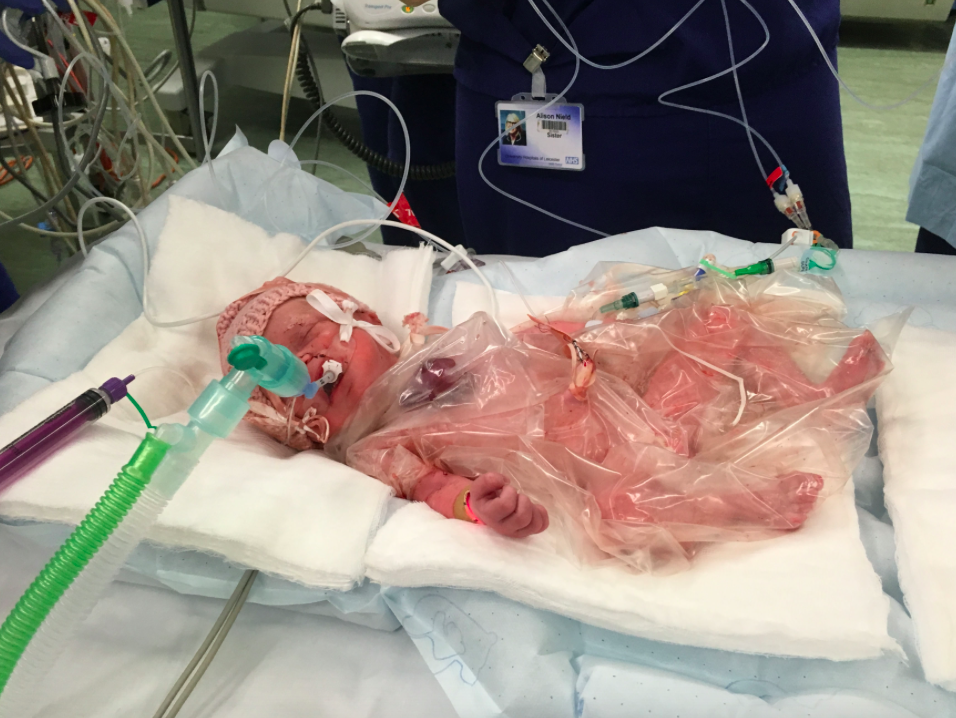
However, Naomi and Dean decided to go ahead with the birth and little Vanellope defied to the odds to survive.
Now experts, including the consultant cardiologist, have said that they do not know of a case in the UK where a baby has survived such a condition.
Speaking of when she first found out about the condition, mother-of-two Naomi said: “I burst into tears. When we did the research we just couldn’t physically look because the condition came with so many problems.
MOST READ ON YAHOO UK TODAY
Santa to the rescue! Watch this heroic Father Christmas help up woman who slipped on road
Barking mad! Woman risks her life running into freezing sea to rescue stranded dog
Dog owner jailed for four years after pet savagely attacked 12 children in playground
Britain’s favourite Quality Street and Roses have been revealed ahead of Christmas
“All the way through it, it was ‘the chances of survival are next to none, the only option is to terminate, we can offer counselling’ and things like that.
“In the end I just said that termination is not an option for me, if it was to happen naturally then so be it.”
Explaining what it felt like after the birth, the 31-year-old full-time mum said: “I started to panic, I actually felt physically sick because I actually thought there was a big possibility I wouldn’t be able to see her or hear her or anything really.
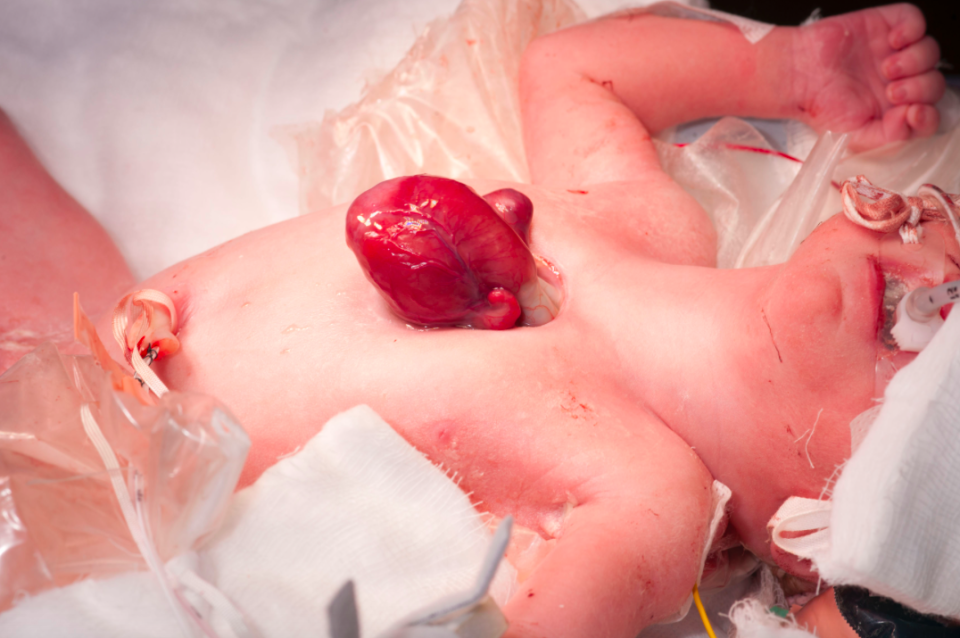
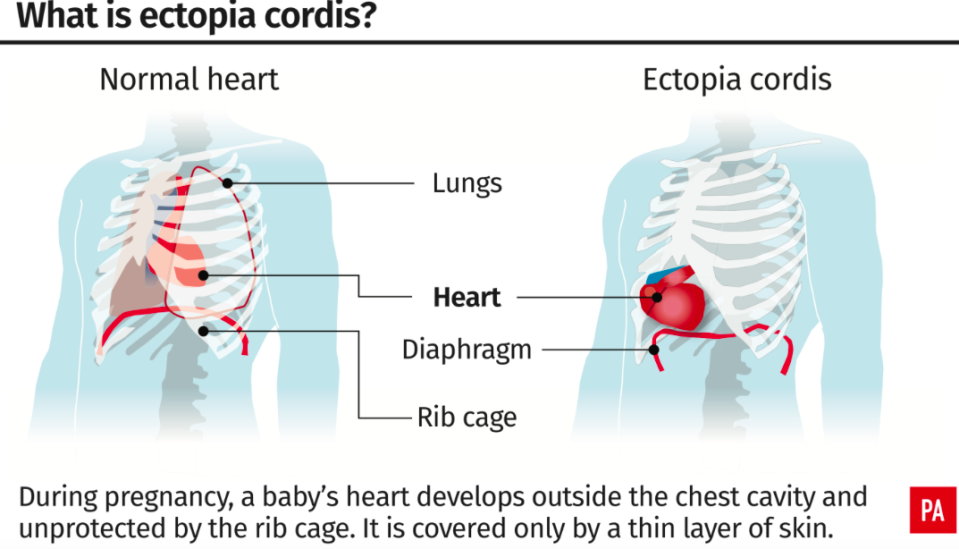
“But when she came out and she came out crying that was it, the relief fell out of me.”
Describing her emotions almost three weeks after Vanellope was born, Naomi added: “I just want to climb into her cot and take her place, just to let her breathe a little bit.”
Dean, who works as a builder, said: “We still didn’t know what we were looking at when we saw the scan, it looked like a little hamster with a hat on.
“We were told that our best bet was to terminate and my whole world just fell to bits.”
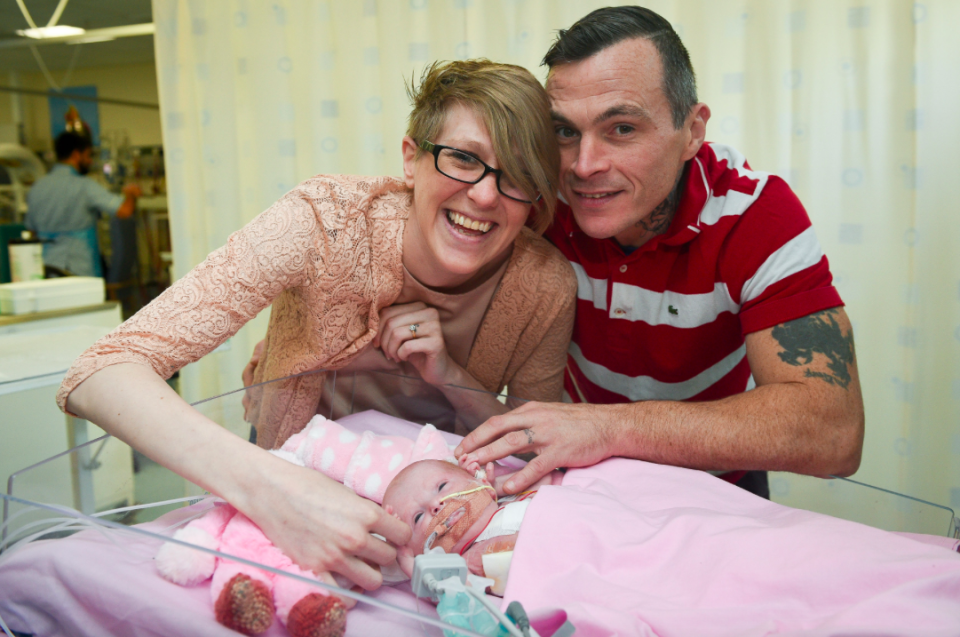
The 43-year-old father-of-three said the couple were told the first 10 minutes after birth were crucial.
He said: “What they said is, when the baby is born she has got to be able to breathe in our oxygen.
“Twenty minutes went by and she was still shouting her head off – it made us so joyful and teary.”
The couple said the baby was named after a character in the Disney film, Wreck It Ralph.
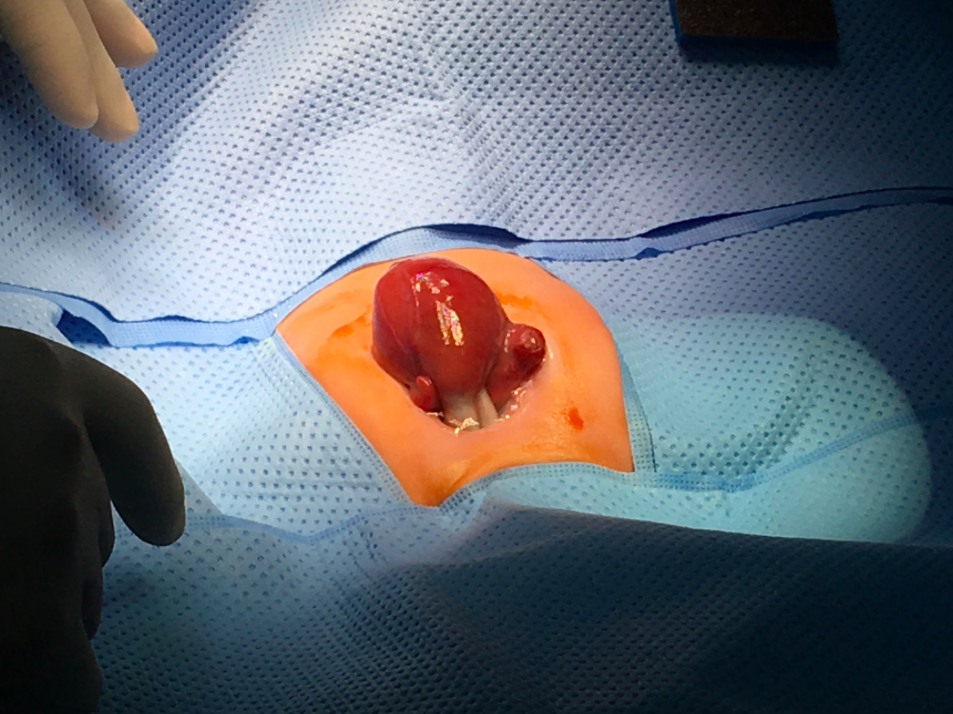
Naomi said: “Vanellope in the film is so stubborn and she turns into a princess at the end so it was so fitting.”
Frances Bu’Lock, the consultant paediatric cardiologist at Glenfield Hospital, said she described the chances of the baby surviving as “remote”.
She said: “I had seen one in foetal life around 20 years ago but that pregnancy was ended.
“I did a quick Google search, as everyone does, and then more of a literature search but that didn’t inform me an awful lot because there’s not much to go on and the cases are all very different.”

 Yahoo News
Yahoo News 

